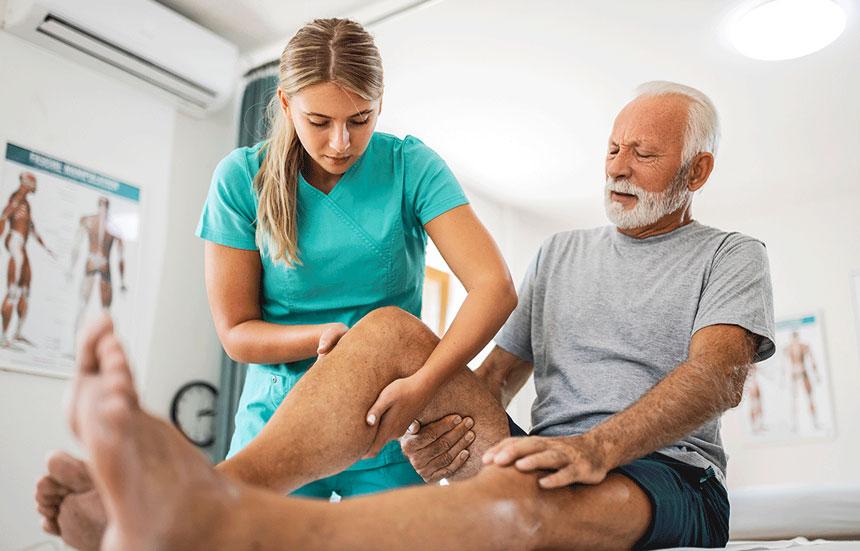2 Important Tips to Help You Maintain Your Joint Health

Do you wake up stiff and sore? Or do you become achy as the day unfolds? If you answered yes to either of these questions, it’s time to start showing some love to your joints. In truth, you should always treat your joints well, whether you’re in pain or not.
Taking care of your joints can help you prevent osteoarthritis, a debilitating joint disease that affects 33 million Americans, according to the U.S. Centers for Disease Control and Prevention. It develops as cartilage – strong, flexible connective tissue that protects and cushions joints – slowly deteriorates and causes intermittent or constant stiffness, achiness, soreness, burning, throbbing or grating sensation. Osteoarthritis can affect any joint, but most people experience it in their hands, knees, hips and spine.
Of course, age, gender and hereditary play a role in developing osteoarthritis. However, there are steps you can take to maintain your joint health and help prevent osteoarthritis such as:
- Getting seven to eight hours of quality sleep every night
- Controlling blood sugar
- Eating joint-friendly foods
- Managing your weight.
- Exercising
Let’s focus on weight management and exercise as both are so vital to healthy joints.
Weight Management and Your Joints
The pressure on your joints is proportional to your body weight because your joints take the strain of the extra weight. In fact, every extra pound of body weight adds four pounds of pressure on your knees, according to the Arthritis Foundation. This means that losing 10 pounds relieves 40 pounds of pressure off your knees. As you would guess, additional pounds affect the weight bearing joints the most. These include the ankles, feet, knees, hips, pelvis and spine, particularly lower back.
And it’s not just joints that are affected. The extra weight also expedites cartilage deterioration, which adversely affects it’s cushioning abilities.
Too much weight also throws off joint alignment, balance, gait and movement patterns. This can strain joints and affect tissues that support the joints like ligaments, tendons and muscles.
And of course, there’s an inflammatory component to the problem. This is the connection to your body composition, specifically having a high fat mass or being obese. Fat cells produce chemicals that inflame joints, damaging joint tissue and cartilage.
Osteoarthritis is just one of the reasons why body composition screening is included in the MDVIP Wellness Program. Your MDVIP-affiliated doctor can work with you to help you achieve a healthier body composition. If weight management is one of your goals, check out these tips >>
Exercise for Your Joints
Exercise is extremely important for maintaining joint health. It helps the muscles surrounding joints remain strong, reduce bone loss, control joint swelling, replenish lubrication to the joint cartilage and prevent stiffness and pain. But you’ll want to focus on low impact activities and stretching, as high impact activities like running, jumping and many sports place a lot of stress on joints and raise your risk for injury and osteoarthritis.
Low impact exercise raises your heart rate slowly and without placing pressure on your joints. These activities are effective for improving muscle strength and easing pain, stiffness and fatigue. There’s a wide range of activities that are considered low impact and include:
- Strength training
- Walking
- Pilates
- Yoga
- Hiking
- Swimming
- Cycling
- Rowing
Always check with your doctor before beginning an exercise program. If you get clearance, here are five effective low impact workouts >>
Stretching helps keep you flexible, ultimately reducing the force on muscles, lowering the risk for injury. It also can improve your range of motion, which generally means less pain and injury. Activities that involve stretching include:
- Yoga
- Tai Chi
- Water aerobics
Always check with your doctor before beginning a flexibility program. If you get clearance, here’s 5 Common Stretching Mistakes. And to learn more about working out, please visit MDVIP Connect at https://connect.mdvip.com/fitness-plan.


